Filter by
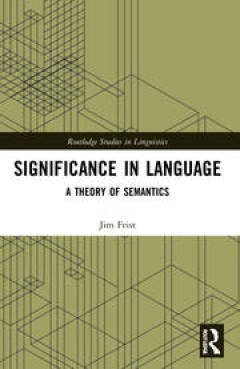
Significance in Language
This book offers a unique perspective on meaning in language, broadening the scope of existing understanding of meaning by introducing a comprehensive and cohesive account of meaning that draws on a wide range of linguistic approaches. The volume seeks to build up a complete picture of what meaning is, different types of meaning, and different ways of structuring the same meaning across myri…
- Edition
- -
- ISBN/ISSN
- 9781003259381
- Collation
- -
- Series Title
- -
- Call Number
- -

Novel Translations: The European Novel and the German Book, 1680–1730
Many early novels were cosmopolitan books, read from London to Leipzig and beyond, available in nearly simultaneous translations into French, English, German, and other European languages. In Novel Translations, Bethany Wiggin charts just one of the paths by which newness—in its avatars as fashion, novelties, and the novel—entered the European world in the decades around 1700. As readers ac…
- Edition
- Ed. 1
- ISBN/ISSN
- 9780801460074, 9780801476983
- Collation
- 264
- Series Title
- Signale: Modern German Letters, Cultures, and Thought
- Call Number
- 809 WIG n
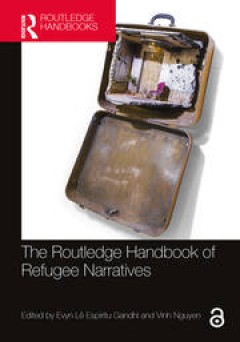
The Routledge Handbook of Refugee Narratives
This Handbook presents a transnational and interdisciplinary study of refugee narratives, broadly defined. Interrogating who can be considered a refugee and what constitutes a narrative, the thirty-eight chapters included in this collection encompass a range of forcibly displaced subjects, a mix of geographical and historical contexts, and a variety of storytelling modalities. Analyzing novels,…
- Edition
- -
- ISBN/ISSN
- 9781003131458
- Collation
- -
- Series Title
- -
- Call Number
- -
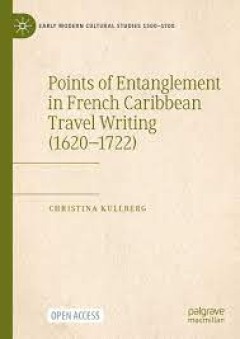
Points of Entanglement in French Caribbean Travel Writing (1620-1722)
This open-access book investigates Francophone Caribbean literature by exploring and analyzing French seventeenth-century travel writings. The book argues for a literary re-examination of the representation of the early colonial Caribbean by proposing theoretical linkages to contemporary Caribbean theories of creolization and archipelagic thinking. Using Édouard Glissant’s notion of points o…
- Edition
- -
- ISBN/ISSN
- 9783031233562
- Collation
- -
- Series Title
- -
- Call Number
- -
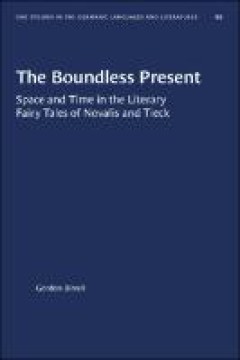
The Boundless Present: Space and Time in the Literary Fairy Tales of Novalis …
This volume is a study in the Romantic reshaping of space and time to evoke the fantastic interior landscape and the temporal dynamics of subjective experience. Close textual analysis is coupled with frequent reference to literary and intellectual history in the reassessment of the narrative art of Novalis and Tieck. The author examines Novalis' "Hyazinth und Rosenblüte", "Atlantis", "Arion" a…
- Edition
- Ed. 1
- ISBN/ISSN
- -
- Collation
- 178
- Series Title
- UNC Studies in the Germanic Languages and Literatures, 95
- Call Number
- 909 BIR b
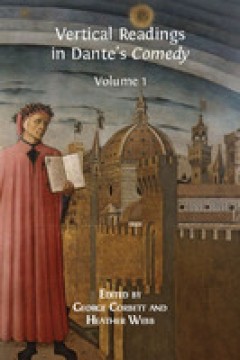
Vertical Readings in Dante's Comedy: Volume 1
"Vertical Readings in Danteâ s Comedy is a reappraisal of the poem by an international team of thirty-four scholars. Each vertical reading analyses three same-numbered cantos from the three canticles: Inferno i, Purgatorio i and Paradiso i; Inferno ii, Purgatorio ii and Paradiso ii; etc. Although scholars have suggested before that there are correspondences between same-numbered cantos that be…
- Edition
- -
- ISBN/ISSN
- 9781783741724
- Collation
- -
- Series Title
- -
- Call Number
- -

Understanding Verbal Art A Functional Linguistic Approach
This book applies linguistic analysis to the poetry of Emeritus Professor Edwin Thumboo, a Singaporean poet and leading figure in Commonwealth literature. The work explores how the poet combines grammar and metaphor to make meaning, making the reader aware of the linguistic resources developed by Thumboo as the basis for his unique technique. The author approaches the poems from a functional…
- Edition
- -
- ISBN/ISSN
- 978-3-642-55019-5
- Collation
- -
- Series Title
- -
- Call Number
- -
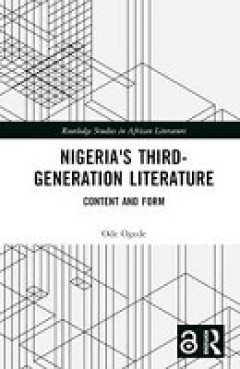
Nigeria's Third-Generation Literature: Content and form
This book considers the evolution and characteristics of Nigeria’s third-generation literature, which emerged between the late 1980s and the early 1990s and is marked by expressive modes and concerns distinctly different from those of the preceding era. The creative writing of this period reflects new sensibilities and anxieties about Nigeria’s changing fortunes in the post-colonial era. Th…
- Edition
- Ed. 1
- ISBN/ISSN
- 9781032268422, 9781032268439
- Collation
- -
- Series Title
- -
- Call Number
- 909 OGE n
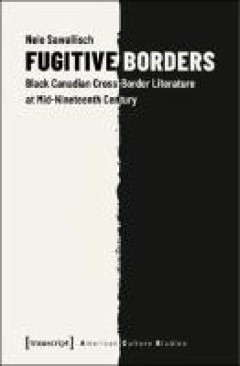
Fugitive Borders: Black Canadian Cross-Border Literature at Mid-Nineteenth Ce…
Fugitive Borders explores a new archive of 19th-century autobiographical writing by black authors in North America. For that purpose, Nele Sawallisch examines four different texts written by formerly enslaved men in the 1850s that emerged in or around the historical region of Canada West (now known as Ontario) and that defy the genre conventions of the classic slave narrative. Instead, these te…
- Edition
- -
- ISBN/ISSN
- 9783839445020
- Collation
- -
- Series Title
- -
- Call Number
- -
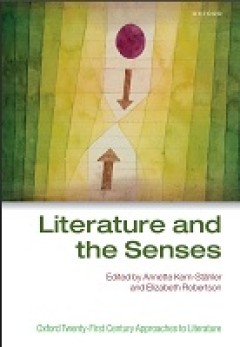
Literature and the Senses
Literature and the Senses critically probes the role of literature in capturing and scrutinizing sensory perception. Organized around the five traditional senses, followed by a section on multisensoriality, the collection facilitates a dialogue between scholars working on literature written from the Middle Ages to the present day. The contributors engage with a variety of theorists from Maurice…
- Edition
- -
- ISBN/ISSN
- 9780192843777
- Collation
- -
- Series Title
- -
- Call Number
- -
 Computer Science, Information & General Works
Computer Science, Information & General Works  Philosophy & Psychology
Philosophy & Psychology  Religion
Religion  Social Sciences
Social Sciences  Language
Language  Pure Science
Pure Science  Applied Sciences
Applied Sciences  Art & Recreation
Art & Recreation  Literature
Literature  History & Geography
History & Geography